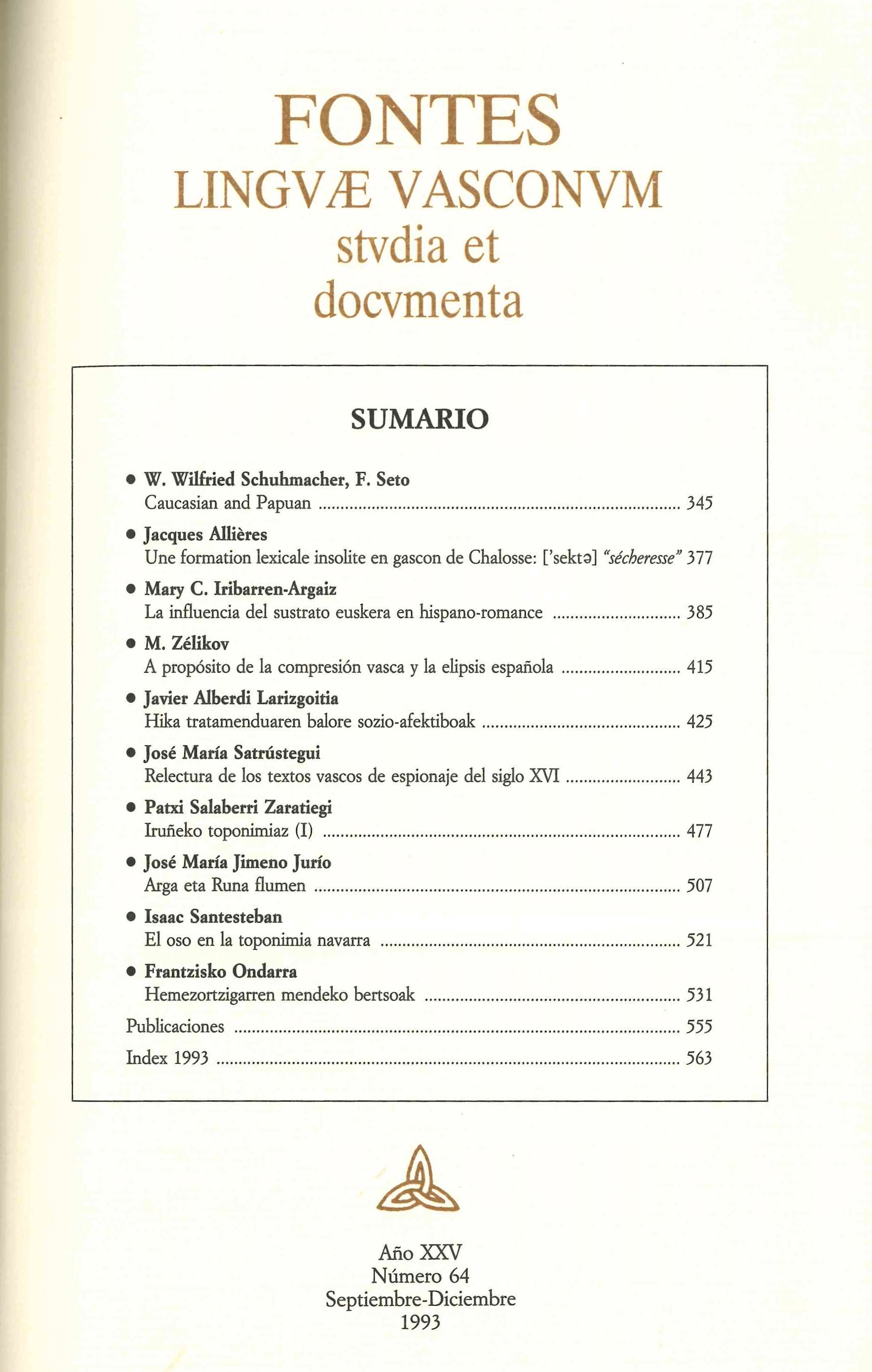Une formation lexicale insolite en gascon de Chalosse: [´sektǝ] “sécheresse”
Laburpena
Gaskuñako Atlas Linguistikoaren 110. mapak, "sequedad", Chalosseko -Euskalerriaren ondoko Landeetako zonaldea- lau herritan lexiko eraketa moeta ezberdin bat badagoela erakusten digu, beste fenomeno batzuen artean.
"Sekta" tipoaren kasua da, hain zuzen; sequer, sequera, secada, secareça tipoak bezala "sek" (lehor) adjetibotik eratorria dena, bainan latin-erromatar jatorria ez duen atzizki atono bat ezbaliz. Ustetan, ondoko euskal herrietan erabilitako "-te" euskal atzizki abstraktoa dena (ad. idor: idorte).
Nahasitako forma honek, aparteko gurutzapen bat baieztatuz gain -euskarak erromatar atzizkiak erabiltzen dituela jakina zen bitartean, aldierantzizko kasu hau erakutsi gabe zelarik- euskal atzizki honen jatorri eta balioaz gogoetak egiteko unea agertu digu.
Gure ustez, -ta, -tze, -tza (edo -z), -de eta -da atzizkiak, lehen aipaturikoaren hurbil daude; zonalde dialektiko eta eratorpen ezberdinen araueran lorturiko "processus" zentzu orokorrak, emaitzadun hitzak (aditzizena, taldekoak) edota gramatika hutsezko baloreak (izen zein adizkeraren aniztasuna) osatzen dutelarik.
Ikerlan modu honek, antzeko ikerketak egiteko bidea erakusten digu eta hizkuntzaren armategi morfologikoaren araketa osoaren ikuspegitik, garrantzi handikoa iruditzen zaigu.
Estatistikak
Egile-eskubideak 1993 Jacques Allières

Esta obra está bajo licencia internacional Creative Commons Reconocimiento-NoComercial 4.0.







